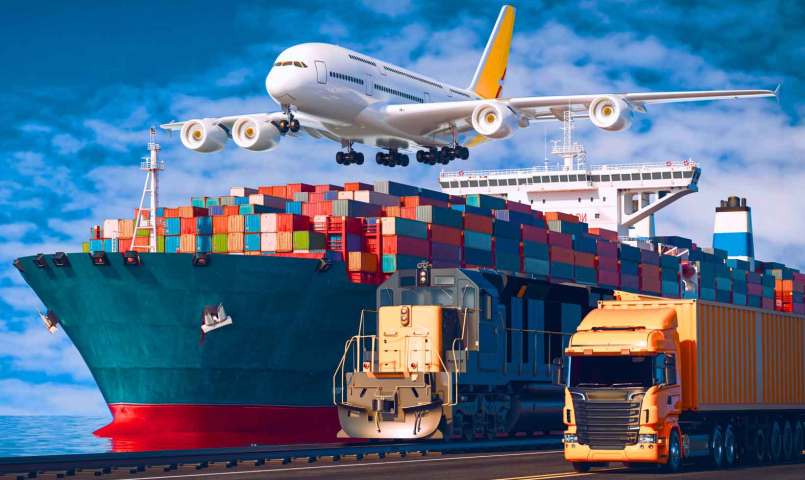- By TOP CHINA FREIGHT
- September 19, 2025
- Shipping
Table of Contents
International freight forwarders in China play a vital role in global trade, where logistics efficiency often determines success or failure. Many importers struggle with high shipping costs, customs delays, and communication issues when sourcing from China. These forwarders provide solutions by managing transport, securing better rates, and coordinating deliveries worldwide. This guide explores their role, compares freight options, shares strategies for choosing a partner, and outlines how forwarders add value to your supply chain.

What do international freight forwarders in China do?
International freight forwarders in China handle key logistics tasks such as:
- Acting as intermediaries between shippers and carriers
- Coordinating cargo movement across sea, air, and land
- Managing transport arrangements and schedules
- Preparing and handling shipping documentation
- Ensuring compliance with customs and trade regulations
They also add value to businesses by:
- Leveraging networks with shipping lines, airlines, trucking firms, and customs brokers
- Reducing risk with real-time shipment updates
- Securing cargo space during peak seasons
- Offering flexible, industry-specific logistics solutions
- Simplifying cross-border processes so importers can focus on sales and operations
Why should importers use a freight forwarder in China?
Importing from China is complex. Without local expertise, businesses may face shipment delays, unexpected charges, and compliance issues. International freight forwarders in China bridge this gap by providing:
Local knowledge:
Familiarity with Chinese ports, carriers, and regulations.
Cost savings:
Negotiated rates with carriers due to high shipping volumes.
Efficiency:
Coordination of multimodal transport, warehousing, and last-mile delivery.
Risk management:
Handling of customs clearance and insurance to prevent losses.
Therefore, choosing the right partner not only ensures timely delivery but also optimizes the total cost of logistics.
What shipping methods do freight forwarders in China offer?
Freight forwarders typically provide sea, air, rail, and express courier services. Each mode has advantages depending on urgency, budget, and cargo type.
| Mode | Transit Time | Cost Level | Best For | Drawbacks |
|---|---|---|---|---|
| Sea Freight | 15–40 days | Low | Bulk shipments, heavy cargo | Slow, subject to port delays |
| Air Freight | 3–7 days | High | Urgent or high-value goods | Expensive for large volumes |
| Rail Freight | 18–25 days (to EU) | Medium | Mid-cost, stable schedule to Europe | Limited destinations |
| Courier/Express | 2–5 days | Highest | Small packages, e-commerce deliveries | Not suitable for bulk cargo |
How much does it cost to ship from China?

Shipping costs vary depending on the method, season, and cargo type. Forwarders negotiate bulk rates, but understanding general cost ranges helps importers budget better.
Rates fluctuate during peak seasons such as pre-Christmas or Chinese New Year. Therefore, importers should plan shipments early to lock in favorable prices.
What customs documents are required when shipping from China?

Forwarders assist in preparing mandatory customs documents. Missing paperwork often causes costly delays.
| Document | Purpose |
|---|---|
| Commercial Invoice | Declares value and details of goods |
| Packing List | Itemizes contents of shipment |
| Bill of Lading / AWB | Transport contract and proof of shipment |
| Certificate of Origin | Confirms where goods were manufactured |
| Import Licenses | Required for restricted goods |
| Customs Declarations | Ensures compliance with local authorities |
What are the pros and cons of different transport modes?
| Method | Pros | Cons |
|---|---|---|
| Sea Freight | Cheapest per unit, suitable for bulk cargo | Long transit, sensitive to weather delays |
| Air Freight | Fast delivery, secure handling | High cost, weight restrictions |
| Rail Freight | Balanced speed and cost, eco-friendly | Limited global coverage |
| Courier | Door-to-door, quick customs clearance | Very costly for large shipments |
How to choose the right international freight forwarder in China?
Years in business and track record with similar shipments.
Partnerships with carriers, warehouses, and customs brokers.
Real-time tracking, digital documentation, and automation.
Clear communication in English and local support in China.
Ability to handle both small parcels and large container loads.
Case Study: Reducing transit time with a forwarder

A mid-sized U.S. importer sourcing electronics from Shenzhen struggled with inconsistent delivery schedules. By partnering with an international freight forwarder in China, they shifted from standard sea freight to a sea-air combination. Goods were shipped to Dubai by sea, then flown to New York. This reduced transit time from 35 days to just 18 days, while keeping costs 25% lower than direct air freight.
This example highlights how forwarders design creative logistics solutions to meet specific business needs.
How do freight forwarders handle supply chain risks?
Risks in international shipping include cargo damage, customs holds, and schedule disruptions. Forwarders manage risks by:
- Offering cargo insurance to cover damages or losses.
- Diversifying carriers to avoid reliance on a single route.
- Providing real-time tracking to anticipate delays.
- Advising clients on compliance to minimize customs issues.
Therefore, working with experienced forwarders ensures that supply chains remain resilient even during global disruptions.
Should small businesses use international freight forwarders in China?
Yes. Small importers often lack in-house logistics expertise. A forwarder can consolidate shipments, reduce costs, and handle documentation. Additionally, forwarders often provide flexible services such as less-than-container load (LCL) shipping, making global trade more accessible to startups and SMEs.
Conclusion
International freight forwarders in China are vital partners for businesses seeking to reduce costs, shorten transit times, and simplify customs processes. They provide expertise, networks, and customized solutions that help companies remain competitive in global trade. By comparing freight methods, preparing documents correctly, and selecting the right partner, importers can ensure smooth supply chain operations. Therefore, partnering with a reliable forwarder is an investment in long-term logistics success.
Need a Shipping Quote?
If you want expert guidance and peace of mind, our team is ready to assist.
TJ China Freight offers tailored solutions to help businesses of all sizes ship more reliably from China.

FAQ
Q1:Do freight forwarders in China require a license?
Yes, most operate under government-issued licenses, ensuring legal compliance and industry standards.
Q2:Can I use multiple freight forwarders at once?
It’s possible, but managing several forwarders may complicate communication and costs.
Q3:How early should I book freight forwarding services?
Ideally, reserve 2–4 weeks in advance, especially during peak shipping seasons.
Q4:Do freight forwarders offer insurance options?
Yes, many provide cargo insurance to protect against loss, theft, or damage.
Q5:Are freight forwarders responsible for delays?
They manage logistics, but delays may still occur due to weather, port congestion, or customs checks.
